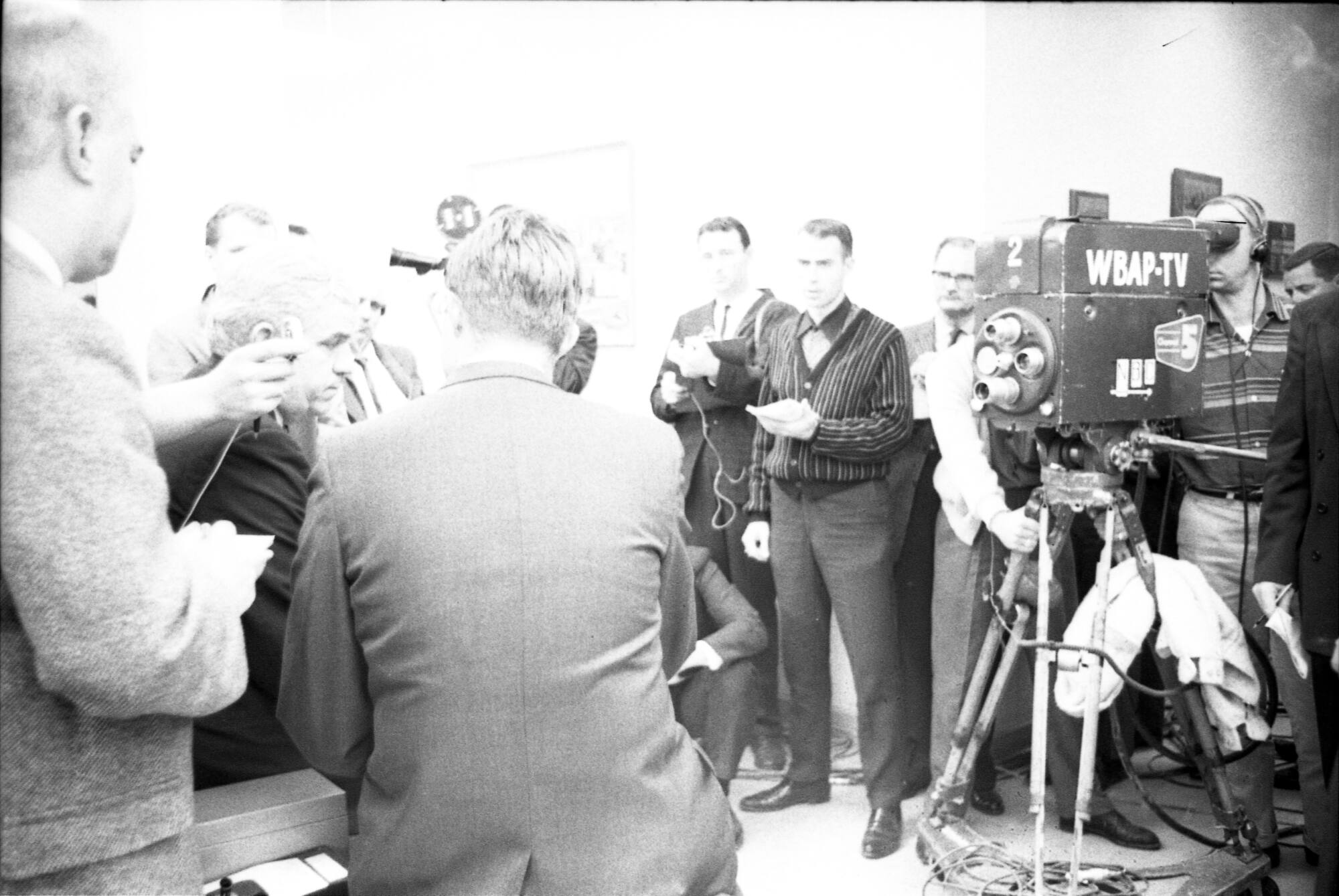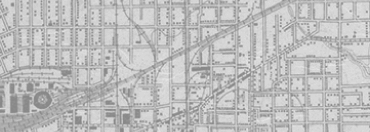


Back
Image of Dallas County Criminal District Attorney Henry Wade with reporters
Original 35mm black and white negative taken by an unidentified Dallas Times Herald staff photographer. This image shows Dallas County Criminal District Attorney Henry Wade speaking with reporters at the Dallas Police Department headquarters on November 23, 1963. Tom Pettit of NBC is the man seated near the center of the photo with his back to the camera. (Wade sits to the left of Pettit.) The man in the center wearing a striped sweater is KLIF Radio police reporter Gary DeLaune.
Image of Dallas County Criminal District Attorney Henry Wade with reporters
11/23/1963
Film
15/16 x 1 7/16 in. (2.4 x 3.6 cm)
Dallas Times Herald Collection/The Sixth Floor Museum at Dealey Plaza
1989.100.0043.0010
KLIF Radio police reporter Gary DeLaune, an acquaintance of Jack Ruby, covered the events of that weekend and was an eyewitness to the shooting of Lee Harvey Oswald. He recorded oral histories with The Sixth Floor Museum at Dealey Plaza in 1998 and 2012. - Stephen Fagin, Curator
Pictures are overexposed when too much light enters the aperture, producing images that are washed out and lacking detail. Most of the images on this strip appear overly bright because they were overexposed. This image is only slightly overexposed, compared with some of the much lighter images earlier on this strip. When Museum staff scanned this negative strip in 2012, they used photo editing software to try to correct the overexposure, allowing us to see some detail in the images that was not visible before. - Lindsey Richardson, Curator of Collections

Image of Dallas County Criminal District Attorney Henry Wade with reporters
Original 35mm black and white negative taken by an unidentified Dallas Times Herald staff photographer. This image shows Dallas County Criminal District Attorney Henry Wade speaking with reporters at the Dallas Police Department headquarters on November 23, 1963. Tom Pettit of NBC is the man seated near the center of the photo with his back to the camera. (Wade sits to the left of Pettit.) The man in the center wearing a striped sweater is KLIF Radio police reporter Gary DeLaune.
Image of Dallas County Criminal District Attorney Henry Wade with reporters
11/23/1963
Microphones
Reporter
Photographs
DeLaune, Gary
Pettit, Tom
Wade, Henry M.
Dallas Times Herald
WBAP-TV
NBC
KLIF station (Dallas)
Dallas Police Headquarters
Dallas Municipal Building
Dallas Police Department
Dallas
Film
15/16 x 1 7/16 in. (2.4 x 3.6 cm)
Dallas Times Herald Collection/The Sixth Floor Museum at Dealey Plaza
1989.100.0043.0010
KLIF Radio police reporter Gary DeLaune, an acquaintance of Jack Ruby, covered the events of that weekend and was an eyewitness to the shooting of Lee Harvey Oswald. He recorded oral histories with The Sixth Floor Museum at Dealey Plaza in 1998 and 2012. - Stephen Fagin, Curator
Pictures are overexposed when too much light enters the aperture, producing images that are washed out and lacking detail. Most of the images on this strip appear overly bright because they were overexposed. This image is only slightly overexposed, compared with some of the much lighter images earlier on this strip. When Museum staff scanned this negative strip in 2012, they used photo editing software to try to correct the overexposure, allowing us to see some detail in the images that was not visible before. - Lindsey Richardson, Curator of Collections









